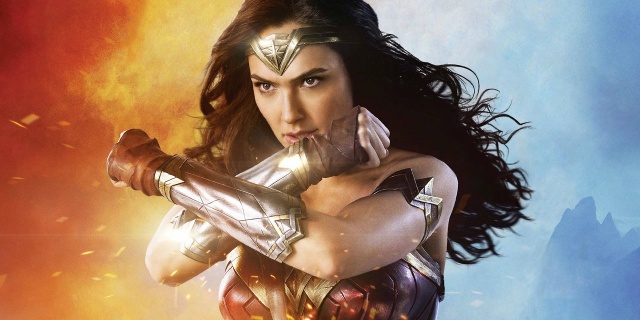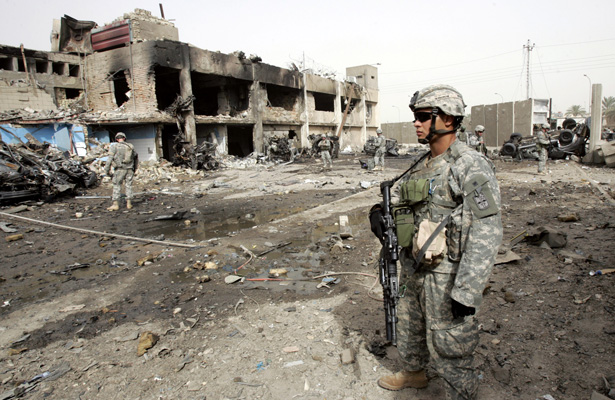 Recently, I was doing some very basic research (more like reading a Wikipedia article) on World War I. The interest of arose after I recently saw Wonder Woman, where World War I features prominently.
Recently, I was doing some very basic research (more like reading a Wikipedia article) on World War I. The interest of arose after I recently saw Wonder Woman, where World War I features prominently.
The film’s intersection with the Great War, in addition to numerous recent events, well encapsulates why such research resonated with me.
Personally, I found the film to be a decent to above average example of the superhero genre; sporadic yet exciting action scences, clever yet cheesy one-liners, and a predictable plot.
As I left the theater, though, I continuously ruminated on message it was attempting to impart regarding war.
I came up with two central messages: one problematic and one refreshing.
Upon my initial viewing, the singular message I most took issue with was its imagining of the liberal, humanitarian war between identifiable good and evil sides.
The scene that most powerfully evoked that sentiment was when Steve Trevor (Chris Pine) emotionally proclaims: “You can do something or you can do nothing. And I have had enough of doing nothing.” He says this as he decides to take Diana Prince (Gal Gadot) to the Western front for the mission to kill the German General Ludendorff and put an end to his manufacture of a terrifying chemical weapon.
This is a not-so-subtle nod to a sentiment that has justified nearly every Western military intervention, and continued intervention, in a foreign nation in my lifetime.
United States military intervention and perpetual military presence in Bosnia, Afghanistan, Iraq, Libya and, most recently, Syria has been justified by the impervious clarion call of “we must do something!”
Such a motto is, of course, integral to cultivating a more civilized, humanitarian imperialism — even if the results are anything but.
Liberal interventionists and neo-conservatives may feign disagreement on matters of war and foreign policy but fundamentally they view the humanitarian military intervention as a worthwhile pursuit — though the degree of such brutality slightly differs.
Take Iraq over the past 25 years.
During the Clinton years, those noble, liberal interventionists, a brutal sanctions regime that killed upwards of 500,000 Iraqis. That brutality was only increased under Bush, that bumbling neocon, with an invasion that killed 4,000 American soldiers, 1 million Iraqis, further destabilize the region, and unleashed the genocidal, millenarian terror of the Islamic State.
But “we had to do something!” to take on the evil Saddam Hussein.
Such humanitarian interventionism continued unabated under Obama as he unleashed an army of flying killer robots and a destabilizing intervention in Libya.
This ethic of “civil” military intervention has now completely washed away under Trump’s full-throated support of Saudi Arabia’s war in Yemen, resulting in a man-made famine and cholera epidemic.
That reminds me to bring things back to the film’s premise of the “good” war, which made me especially infuriated given its background of World War I.
Using World War II as background would have made more sense as World War I was anything but a “good” war.
The war was mostly a result of irreconcilable tensions between numerous imperial powers and their complicated web of alliances.
Though the film casts the Germans as the singular evil to be destroyed, the war itself was anything else but a simple good versus evil dichotomy — despite what little I and many others learned about it in history class.
The “War to End All Wars” was a horrific bloodbath where an entire generation of young men were killed and maimed in sacrifice for the desires of imperialists and politicians. It was a fruitless annihilation of 38 million lives only to result in a bloodier round two a generation later.
A very noble war indeed.
While I don’t expect a Hollywood movie to be historically accurate, it is an enormous disservice to a war many Americans know little about.
To be fair, there is one place where Wonder Woman partially redeems its political message on war.
It is its criticism of the “Great Man” theory, which views history through the lens of great heroes or villains and their valiant achievements or ferocious evil.
This occurs in the film when Steve tells Diana peace cannot be achieved simply by killing the “evil” General Ludendorff (Danny Houston) in the same way that peace cannot be achieved on Earth simply by killing Ares (David Thewlis), the god of war.
The “Great Man” theory of history is present in many recent wars and military interventions.
If only Bashar Assad would step down, the bloodshed in Syria will stop.
If only Saddam would just give up his weapons of mass destruction, invasion would be avoided.
If only Kim Jong-un were assassinated, North Korea would be less of a nuisance.
If only we defeat ISIS, terrorism will no longer threaten us.
If only we elect a stronger, smarter president, will the world respect us again.
Viewing history as a cosmic contest between the good, strong leader and the sociopathic, barbarous dictator is simple, it is comforting, it makes the world less complicated.
In the midst of Wonder Woman’s ideological crusade of the “good” war, it is refreshing that it provides a reprieve to seeing historical events, especially wars, as mere consequence of individual actions.
***
I am 23. For more than two thirds of my life my country has been at war, and it doesn’t look to be stopping anytime soon.
This is because of many reasons, but our collective subscription to the notion of the humanitarian war and the “Great Man” theory are just a few reasons for our state of endless war.
It doesn’t help that our popular culture contributes to the circulation of those ideological viewpoints.
As I contemplated Wonder Woman and its political message, I couldn’t help but realize how thoroughly detached I and many of my peers out to the realities of war.
Other than a few people I vaguely remember from high school, I have no personal connection to anybody currently serving overseas, much less that served in Iraq or Afghanistan.
I can’t imagine how much further detached our elite policymakers are from war than even myself.
We have been at war so long it barely registers for most. Unsurprisingly, the war in Afghanistan never came up once during last year’s presidential debates.
This is why I was so struck by a series of editorials in the Wall Street Journal last week; one advocating regime change in North Korea and the other regime change in Iran.
The twisted irony is that nobody that contributed to those editorials, and likely nobody in their families, will ever have to sacrifice life or limb conducting that regime change — regime change which will not be peaceful.
It’s easy to advocate for war when you can read about it with your morning coffee.
It is totally unfathomable for me to envision being a Frenchman during World War I or World War II where I would personally know many people destroyed, physically and spiritually, by total war.
For a film I saw as having its largest political resonance on the question of war, contemplating it in an age of endless war is both fascinating and utterly tragic.



The New Yorker on U.S. and North Korea: http://www.newyorker.com/podcast/political-scene/robert-gallucci-talks-to-david-remnick-about-negotiating-with-north-korea 🙂
I thought it was interesting I don’t know if it is correct 🙂
Sorry the it in the comment above refer to the new yorker podcast! 🙂